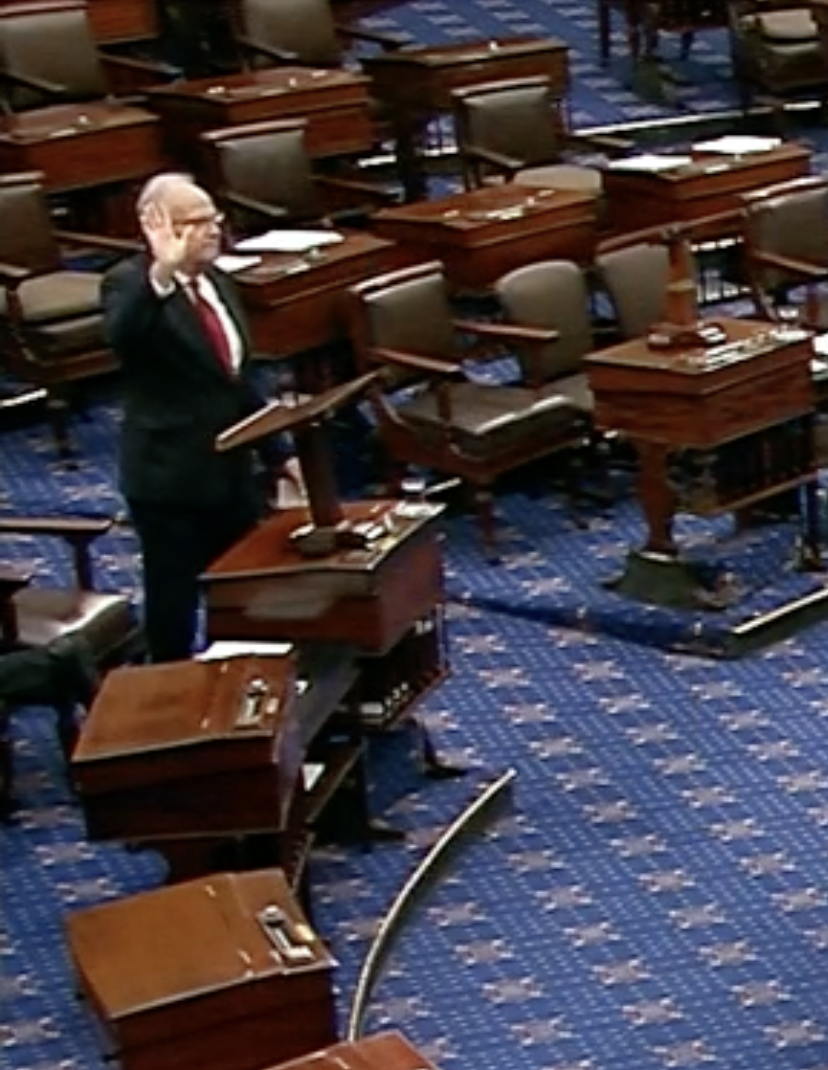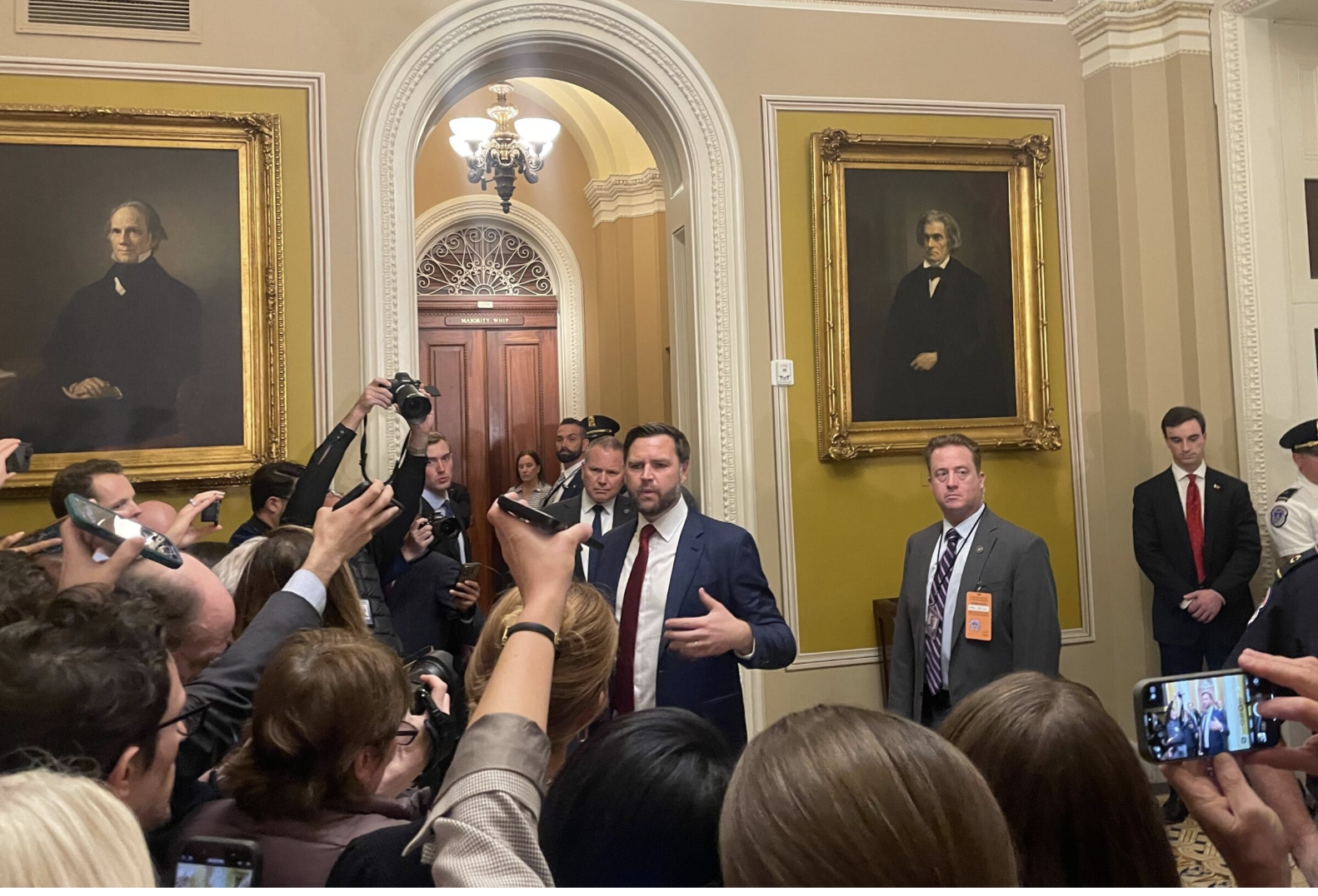
WASHINGTON — The U.S. Senate Tuesday failed for the 13th time to advance a stopgap spending bill that would fund the government until Nov. 21 and end the nearly one-month government shutdown.
Tuesday was also the day when air traffic controllers, who are working without pay, missed their first full paychecks. The FlightAware delays tracker reported 7,404 delays within, into or out of the United States on Monday and 161 cancellations within the U.S. A temporary ground stop was issued at Los Angeles International Airport on Sunday morning due to staffing issues.
In the nation’s capital, the 54-45 vote was nearly identical to the previous 12 votes, as Republicans and Democrats stuck to their positions. The legislation needed at least 60 votes to advance, under the Senate’s legislative filibuster.
Nevada Sen. Catherine Cortez Masto and Pennsylvania Sen. John Fetterman, both Democrats, and Maine independent Sen. Angus King voted with Republicans to advance the legislation. Kentucky GOP Sen. Rand Paul voted no.
Vance defends SNAP cutoff
Democrats are under increasing pressure to pass the House-passed GOP stopgap measure, with 42 million Americans at risk of losing food assistance for November, many federal workers beginning to miss their paychecks and one of the largest unions representing federal workers calling for an end to the government shutdown, now at day 28.
Amid the government shutdown, the Trump administration has moved to lay off federal workers, and a federal judge is holding a Tuesday hearing to consider a preliminary injunction to block the mass Reductions in Force, or RIFs.
As President Donald Trump continues his overseas travel throughout Asia meeting with foreign leaders, Vice President JD Vance joined Senate Republicans during their Tuesday caucus lunch meeting.
Vance defended USDA’s decision to not tap into its contingency fund provided by Congress to continue food assistance benefits amid a funding lapse.
“We’re exploring all options,” Vance said.

Congress provided USDA with the multi-year contingency fund, which totals about $6 billion — short of the roughly $9 billion needed to cover a full month of SNAP benefits. USDA would have to reshuffle funds to provide November payments.
“We are trying as much as possible to ensure that critical food benefits get paid,” Vance said.
A coalition of Democratic state officials Tuesday sued the Trump administration and urged a federal judge to force the U.S. Department of Agriculture to release SNAP benefits for 42 million people.
Vance called on five Democrats to join Senate Republicans in approving a short-term funding bill.
“If the Democrats just opened up the government, then we wouldn’t have to play this game where … we’re trying to fit a square peg into a round hole with the budget,” Vance said.
Democrats have continued to vote against the House’s GOP short-term spending bill to draw attention to and force negotiations on tax credits that will expire at the end of the year for people who buy their health insurance through the Affordable Care Act Marketplace. Republicans maintain the government must reopen before they begin any talks.
Votes possible on SNAP funding
Republicans are also weighing whether to pass a stand-alone bill by GOP Missouri Sen. Josh Hawley to approve funding for the Supplemental Nutrition Assistance Program, or SNAP.
Ten Senate Republicans have joined to sponsor the bill, including Senate Appropriations Chairwoman Susan Collins of Maine. One Democratic senator also cosponsored the bill, Sen. Peter Welch of Vermont.
Senate Majority Leader Chuck Schumer said that Democrats would also introduce their own separate bill to provide funding for not only SNAP, but for the Special Supplemental Nutrition Program for Women, Infants, and Children, or WIC.
During a Tuesday press conference, Senate Majority Leader John Thune, R-S.D., did not seem receptive to scheduling a Senate vote on a stand-alone bill to address SNAP.
“I mean, this piecemeal approach where you do one off here, one off there, to make it seem more politically palatable to somebody…that is just a wrong way to do this,” Thune said.
Instead, he argued that Democrats should just support the stopgap spending bill.
Another critical deadline is approaching. Active-duty military members will miss their paychecks by Friday if the government is still in a funding lapse. The Trump administration already reprogrammed $8 billion earlier this month from multi-year research funds from the Defense Department in order to pay the troops.
However, Vance said the Trump administration expects to be able to pay troops this Friday, although the vice president didn’t detail where those funds would come from.
Before Tuesday morning’s vote, Thune said Democrats should listen to calls for an end to the shutdown from the American Federation of Government Employees, or AFGE, labor union, which typically aligns with Democrats.
House Speaker Mike Johnson, a Louisiana Republican, also cited the call from AFGE, telling Democrats “you have an off-ramp,” during a Tuesday press conference.
“The largest unions are saying, ‘Please do this,’” Johnson said. “You can claim that as cover and say that you had to do it.”
Last week, there were dueling bills from both parties related to paying federal workers amid the shutdown, but those efforts failed to meet the 60-vote threshold to move forward.
The end of the 2019 government shutdown, which lasted 35 days, was in part due to shortages of air traffic controllers that upended air travel across the country and forced lawmakers to strike a deal.
Schumer critical of administration shutdown decisions
During a Tuesday press conference, Schumer slammed the Trump administration for refusing to tap into its contingency fund for SNAP.
“The money is there,” the New York Democrat said. “The hungry people, the hungry children, the hungry veterans, the hungry elderly, could be fed, but Trump’s using them as hostages.”
Of the 42 million people on SNAP, roughly 40% are children 17 and younger.
He also criticized Trump for traveling abroad and for his administration’s priority to demolish the East Wing of the White House for a ballroom.
“His number one priority is his ballroom,” Schumer said. “When people are suffering, what kind of president is this?”






